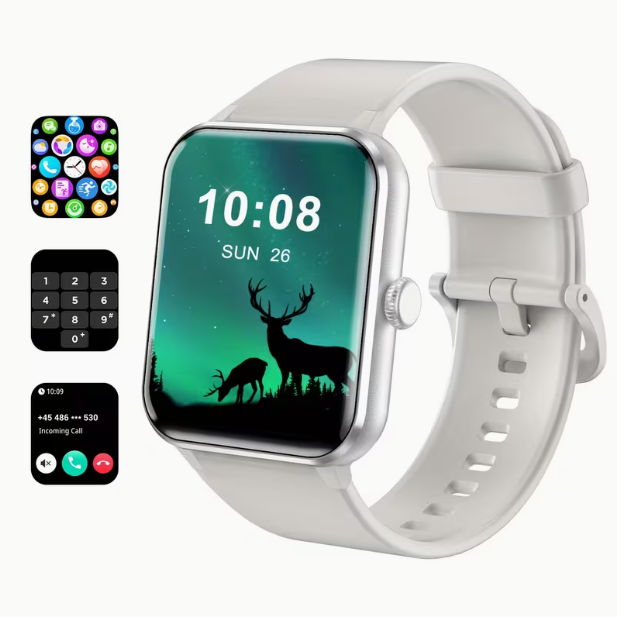Are Smart Watches Worth It?
- Dave Lucciano

- Nov 1, 2025
- 3 min read
Updated: Nov 23, 2025
Why They're Trending in 2025
The smartwatch market has exploded in recent years, with millions of people strapping these miniature computers to their wrists. But beyond the hype and sleek marketing, are smartwatches actually worth the investment? As we move through 2025, these devices have evolved from glorified notification centers into genuinely useful health monitors and productivity tools. Here's what makes them valuable in real-world scenarios.
Health Monitoring That Actually Matters
The most compelling reason to own a smartwatch in 2025 is its health tracking capabilities. Modern smartwatches can detect irregular heart rhythms that might indicate atrial fibrillation, a condition affecting millions of people worldwide. Several users have reported receiving alerts about abnormal heart rates that led them to seek medical attention, potentially preventing strokes or other serious complications.
Sleep tracking has also matured significantly. Instead of just telling you how long you slept, today's smartwatches analyze sleep stages, blood oxygen levels, and even detect sleep apnea indicators. This data helps people understand why they wake up exhausted despite sleeping eight hours, leading to actionable changes in their routines.
For fitness enthusiasts, smartwatches provide detailed metrics during workouts—tracking heart rate zones, VO2 max estimates, recovery times, and training load. Runners can monitor their cadence and form, while swimmers get stroke counts and efficiency metrics. This granular data helps optimize training and prevent overexertion injuries.
The Convenience Factor You'll Actually Use
Smartwatches excel at reducing phone dependency. Instead of constantly pulling out your phone for every buzz and beep, you can glance at your wrist to determine if something needs immediate attention. This seemingly small change has significant impacts on focus and social interactions—you can stay connected during meetings or dinners without being glued to a screen.
Contactless payments through your watch prove surprisingly liberating. Whether you're out for a run, at the beach, or simply have your hands full with groceries, tapping your wrist to pay eliminates the need to carry a wallet or phone for quick errands. This feature alone has converted many skeptics into regular smartwatch users.
Navigation becomes seamless with haptic feedback on your wrist. The gentle taps indicating when to turn make following directions safer while driving or cycling, and nearly effortless when walking through unfamiliar cities. You're not staring at your phone screen trying to figure out which way to go.
Productivity Enhancements for Daily Life
For professionals juggling multiple responsibilities, smartwatches serve as intelligent assistants. Calendar notifications, reminders, and the ability to quickly respond to messages keep you on track without derailing your focus. Voice assistants allow hands-free control for setting timers, creating reminders, or making quick notes—perfect when you're cooking, exercising, or your hands are otherwise occupied.
The impact on work-life balance shouldn't be underestimated. Many smartwatches include stress tracking and breathing exercises, prompting users to take breaks when stress levels rise. Activity reminders encourage movement throughout sedentary workdays, combating the health risks of prolonged sitting.
The Drawbacks Worth Considering
Smartwatches aren't perfect. Battery life remains a limitation, with most requiring charging every one to three days. They represent another device to maintain and keep updated. The initial cost, ranging from $200 to over $800 for premium models, is significant, though prices have become more accessible.
Privacy-conscious individuals may feel uncomfortable with devices constantly monitoring their biometrics and location. Additionally, the constant connectivity can become overwhelming if you don't actively manage notifications.
The Verdict
Smartwatches are worth it for people who value health insights, appreciate convenience, or want to reduce phone dependency. They're particularly valuable for fitness enthusiasts, health-conscious individuals, and busy professionals managing multiple responsibilities.
However, they're not essential. If you're comfortable with your current routines and don't need health monitoring, a traditional watch and your smartphone will serve you fine. The key is honestly assessing whether you'll use the features that justify the cost.
The 2025 trend toward smartwatches reflects their maturation from novelty gadgets into practical tools. They've found their place by solving real problems rather than creating new ones. For many users, the combination of health awareness, daily convenience, and reduced screen time makes them a worthwhile investment that pays dividends in wellbeing and productivity.





Comments